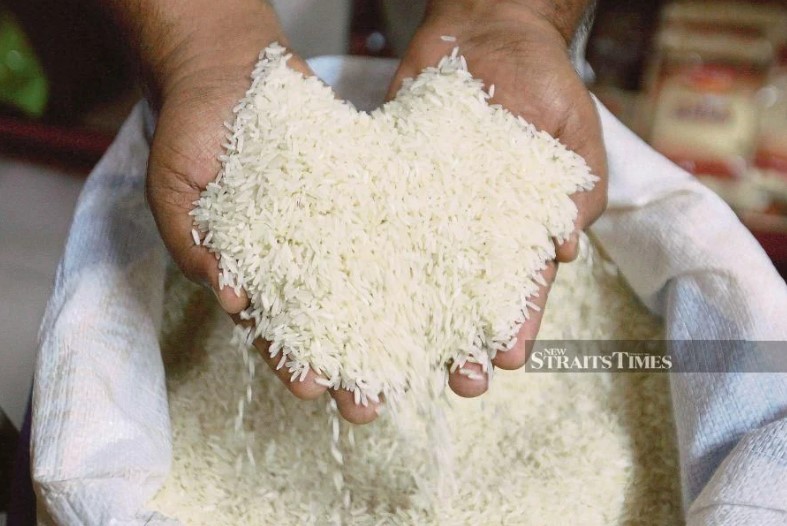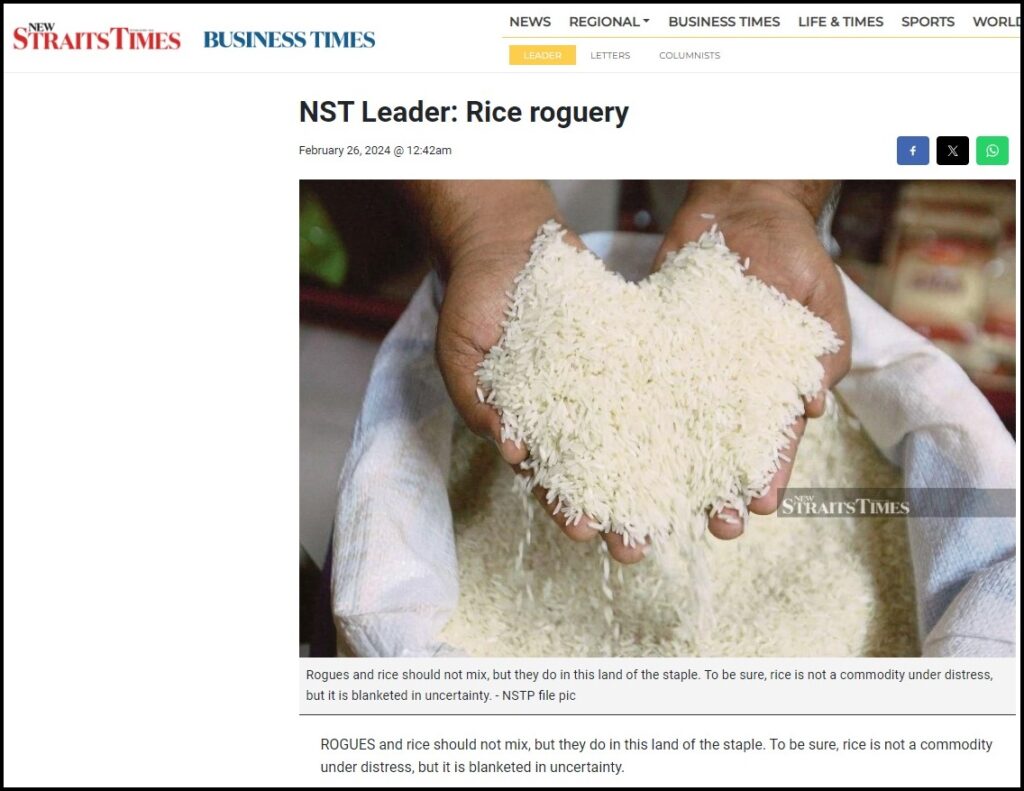


ROGUES and rice should not mix, but they do in this land of the staple. To be sure, rice is not a commodity under distress, but it is blanketed in uncertainty.
Rogues, aka food frauds, either as individuals or as a company, see this as an opportunity to make easy money. On Friday, enforcement officers from the Padi and Rice Regulatory Division, exposed one such corporate misbehaviour in a raid on a rice mill in Shah Alam, Selangor.
The company, the division alleges, buys or smuggles broken rice meant for animal feed and repackages it with local rice for sale at a higher price. In the raid, the regulators seized 410 sacks of rice, each weighing 50kg.
None of the sacks, weighing in at 22,500kg, came with a label, a legal requirement. That was what was seized, but how many sacks got away before the raid is anybody’s guess. Imagine passing off animal feed for imported rice.
Despicable corporate impropriety, we say. And unforgivable, too. The authorities must be unforgiving. There should be no place for such corporate wrongdoing in this country.
But Malaysia has two problems when it comes to ending such illegal business practices. One is legislation that is known more for its bark than its bite. Take the company under investigation. Regulators tell us if the company is found guilty, it will be fined up to RM25,000 for the first offence under the Padi and Rice Control Act 1994. Note the “up to”, which means it could be way less. That is lame.
It is so lame, the company will live to do it over and over again. Up to RM25,000 for passing off animal feed as rice? Little wonder such roguery never goes away.
A non-governmental organisation, the Malaysian Muslim Consumers Association, even lamented about such despicable corporate behaviour going on for at least about a decade. The punishment must match the crime. Try imprisonment of directors and senior management of the company.
Try, too, deregistering the company. Even company-friendly Japan has been forced to pass such laws, not because of rising rice roguery, but food fraud generally. Harsh prison sentences and stiff fines will certainly do a better job than “up to RM25,000” of the Padi and Rice Control Act 1994.
Lax enforcement, our second point, is another breeder of rogue companies. The frequent lament by enforcement agencies is that there just isn’t enough manpower. Happily, there are more civil servants than there are rogue companies.
Only that more of them should be in enforcement units rather than opting to be pen-pushers in the office. Distribution of manpower must be a solution, not a problem. We understand that more sophisticated technology and manpower for enforcement agencies means more money out of the government coffers, something that Putrajaya can ill afford. But the Public Services Department can do more with what the civil service has, without spending a ringgit more.
Skew the distribution of manpower a little more towards enforcement agencies, we suggest. But lack of manpower shouldn’t be an excuse for making occasional raids, especially when the problem of falsely labelling rice has been going on for nearly a decade. Unsuspecting consumers deserve more from their regulators and lawmakers.
Article by: New Straits Times
NST LEADER: RICE ROGUERY
https://www.nst.com.my/opinion/leaders/2024/02/1017707/nst-leader-rice-roguery